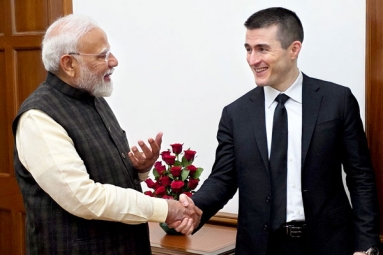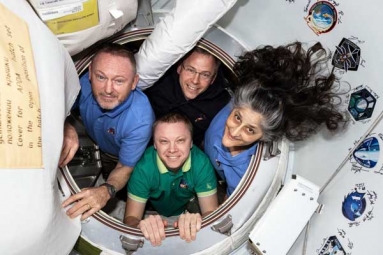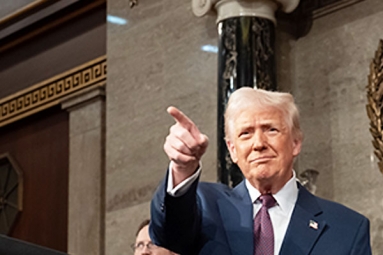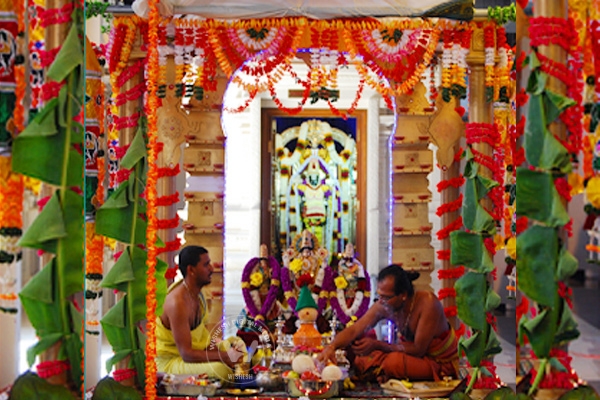
(Image source from: Ugadi Celebrations at Maha Ganapati Temple })
'Ugadi' is celebrated as New Year's Day by the people of entire Deccan region of India. In Andhra Pradesh and Karnataka, people call this festival as Yugadi/Ugadi. People in Maharashtra celebrate the day as Gudi Padwa, while people in Rajasthan observe the day as Thapna. Sindhis also observe the same day as New Year's day and call it Cheti Chand.
The word 'Ugadi' or 'Yugadi' has been derived from the Sanskrit words yuga (meaning age) and ādi (meaning the beginning). So the combined word means, "the beginning of a new age".
'Ugadi' is celebrated on a different day every year as it is based on the Hindu calendar that is a lunisolar calendar. 'Ugadi' is the first day in the new year in the Saka calendar that begins with the month of Chaitra (March–April).
People celebrate the festival with great fanfare. Family members gather together and enjoy a hearty feast. The day sees people observing the ritual showers (oil bath) and prayers at home and in temples.
Food is an important part of any festivity in India and 'Ugadi' is no exception. Also a specific mixture of six ingredients – neem buds/flower, jaggery, green chilly/pepper, salt, tamarind juice and unripe mango - is prepared that is consumed by all members of the family. Besides, home-made delicacies like Bhakshyalu or Obbatu are eaten by Telugu people.
People also listen to the recitation of the Panchangam (almanac) of the new year. It is basically a general forecast of the entire year.
The Indian community in Arizona can visit the Maha Ganapati temple to celebrate 'Ugadi'. A special Alankaram to Lord Balaji will be held on March 30 to celebrate the day.
The temple has the following priests:
Pandit Jeyantheeswaran Bhattar (480)3886583
Pandit Anil Sharma (302)5885890
Pandit Jeyantheeswaran Bhattar has several years of formal training as a temple priest. He hails from the Vallioor, Tamil Nadu. Panditji is well versed in Krishna Yajur Veda and Shaiva Agama. He is qualified to perform rituals and religious ceremonies according to the Hindu traditions. Pt. Jeyantheeswaran Bhattar has a formal training in the veda, agama and shastra at Veda Agama Samaskrutha Maha Patashala, Bangalore. He is conversant in Tamil and Hindi languages. Pt. Bhattar has performed a range of rituals ranging from Ayusha Homa to Hindu weddings. He has performed specialized pujas like Utsava puja, Mandala puja, Chaturkala puja, Vishesha puja, Sathyanarayan puja and Navarathiri pujs and different kinds of shanthis.
Pandit Anil Sharma has enormous experience in performing temples at several temples in secunderabad and Guntur in Andhra Pradesh India. He can speak in Telugu, Sanskrit and English. Besides performing special alankarams to deities at temples, he has been educated in atrological sciences (jyothisha praveena, jyothisha visarada). Pt. Sharma is well versed in smartha panchadasa karmas. He has over ten years of experience as a temple priest. He joined Vedic school at the age of 11 and completed his smartha course of 8years (panchadasa samskaraas including death rituals) and then did his archaka pravesa course. Sharma is a member of the indian council of astrological sciences ( ICAS ) and has completed astrology courses like jyothisha visharada and jyothisha praveena.
Please visit the temple and mark a pious beginning to the New Year.
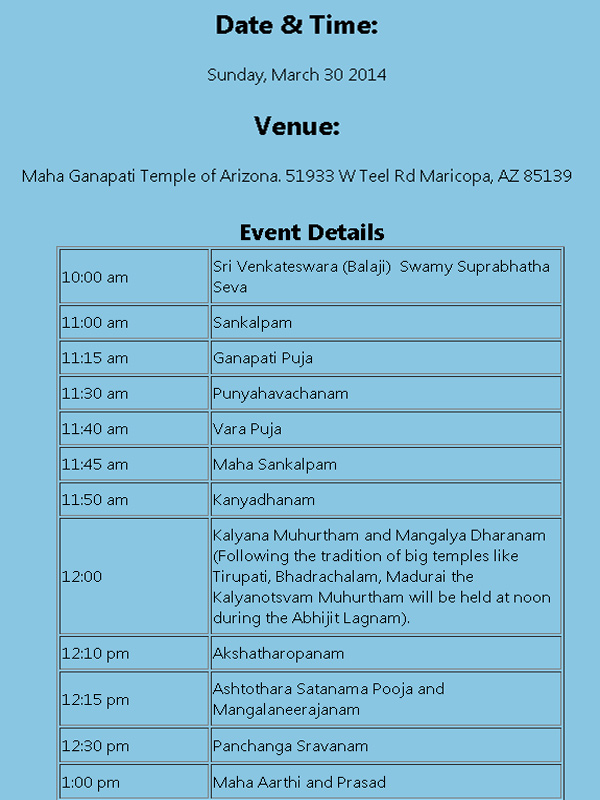
For more images please Click here
(AW: Pratima Tigga)







